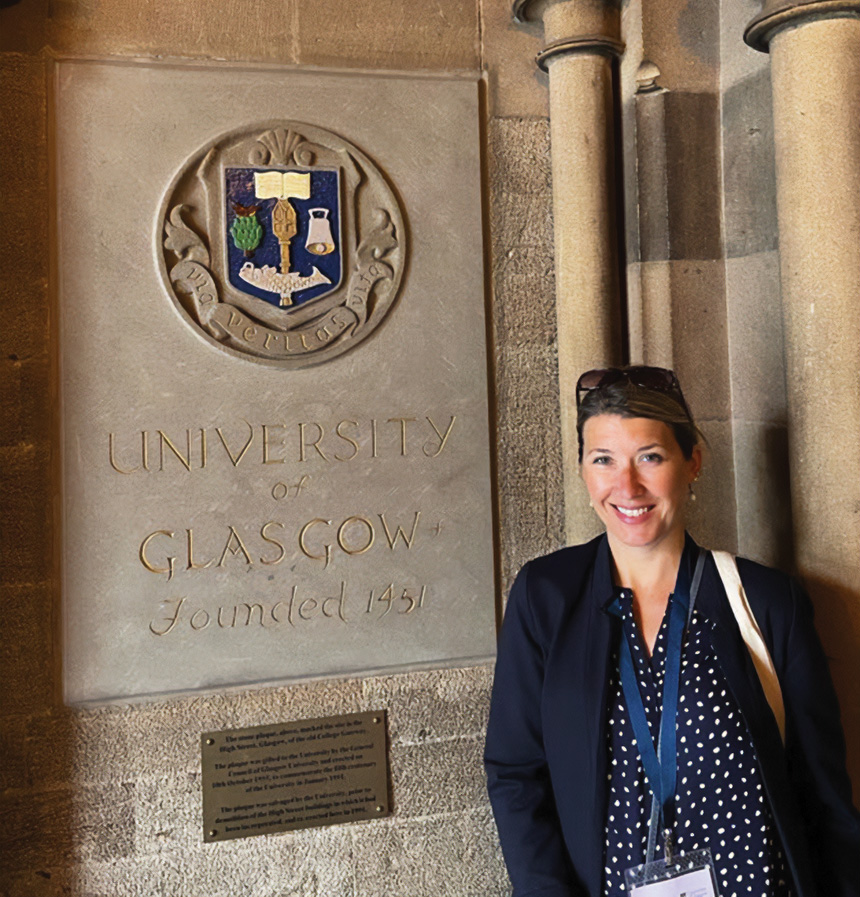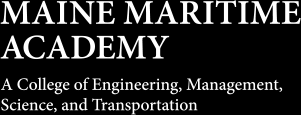Global change
Focus on Global Change
Professor Sadie Alley Ferreira ’03 speaks at International Green Energy Conference in Scotland
“IT WAS MAGICAL,” said Professor Sadie Alley Ferreira ’03. “Being asked to present my work at an international conference in Scotland was fantastic.”
Ferreira attended the 15th International Green Energy Conference at the University of Glasgow in July to discuss the innovative way she has students research global climate change. Ferreira is an Associate Professor of Engineering, coordinator of the Power Engineering Technology (PET) program, and holds a third-class stationary steam license. She focuses on shoreside power generation using both renewable and traditional energy sources.
“I’m passionate about the environment,” said Ferreira, “and came to MMA as an undergraduate to study oceanography.”
It turned out not to be what she expected, and she wasn’t sure what to do.
“My dad is a third-generation mill worker and suggested I give power engineering a try,” she said. “He thought maybe I could find a good fit.” Ferreira worried that being in the power industry did not align with her love for the environment, but discovered it was exactly the opposite.

Prof. Sadie Alley Ferreira at University of Glasgow
PHOTO BY JON FERREIRA
“I get to be at the forefront of where change has to happen, since proper maintenance and operation ensure plants operate as cleanly as possible,” she said. “I’m a realist. We need to have electricity. I’m not washing my clothes in the lake, thank you very much.”
Working as an engineer, Ferreira was surprised how much informal education took place in a plant. “I had never thought it through,” she recalled, “but it makes perfect sense. Because processes and procedures are always changing, ongoing training is essential. I found it satisfying to teach people new information and new ways of doing things.” Ferreira enjoyed it so much she got her master’s in education at Husson University.
In 2018 Ferreira joined the MMA faculty full-time as an assistant professor and has found it a good balance of her interests and skills. Among her teaching responsibilities are the PET Capstone I and II courses for seniors. Power engineering focuses on shoreside electrical power generation, and prior to 2021, the Capstone I curriculum focused on coal-fired power plants. Ferreira switched the curriculum’s focus to the importance of transitioning to green energy worldwide. The method she developed for students to study this issue was the subject of her presentation at the Glasgow Conference.
Ferreira has students identify and describe the changes countries are making (or should be making) in the power industry to fight climate change. The path to this understanding is for each student to research one country, its risk for climate change, and how it plans to combat the threats. Students use data from the Intercontinental Panel on Climate Change Interactive Atlas to generate maps, tables, and graphs showing observed and projected climate change for various time periods. They determine how their assigned country may be affected by climate change and how it plans to lower carbon emissions. Students synthesize their findings into a poster that presents their country’s risks from climate change and the country’s plans to manage those risks. In addition to presenting their own findings, students also critique two posters of classmates.
“I wanted to show conference participants how the interactive atlas is an effective classroom tool,” said Ferreira. “With the built-in scenarios, students can predict how the planet may be affected in the future. Having students use the same data as the scientists who wrote the report is incredibly powerful!”




Post Comment
Comments are moderated and will be reviewed prior to posting online. Please be aware that when you submit a comment, you agree to the following rules:
Maine Maritime Academy reserves the right to delete any comment that does not comply with these guidelines and is not responsible or liable in any way for comments posted by its users. If you have a message for the editor, please email mariner@mma.edu.
Campus Currents
View All >Read More
Read More
Read More